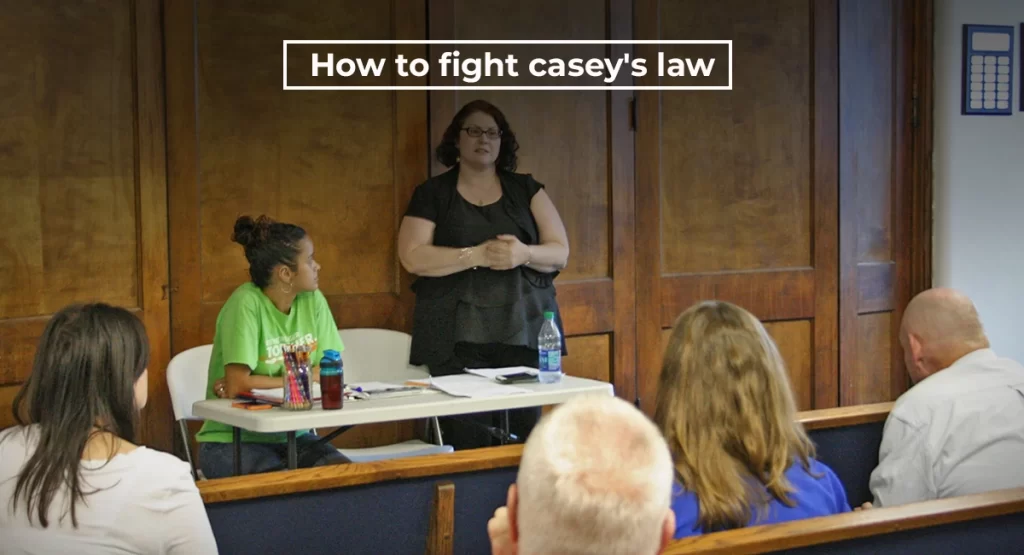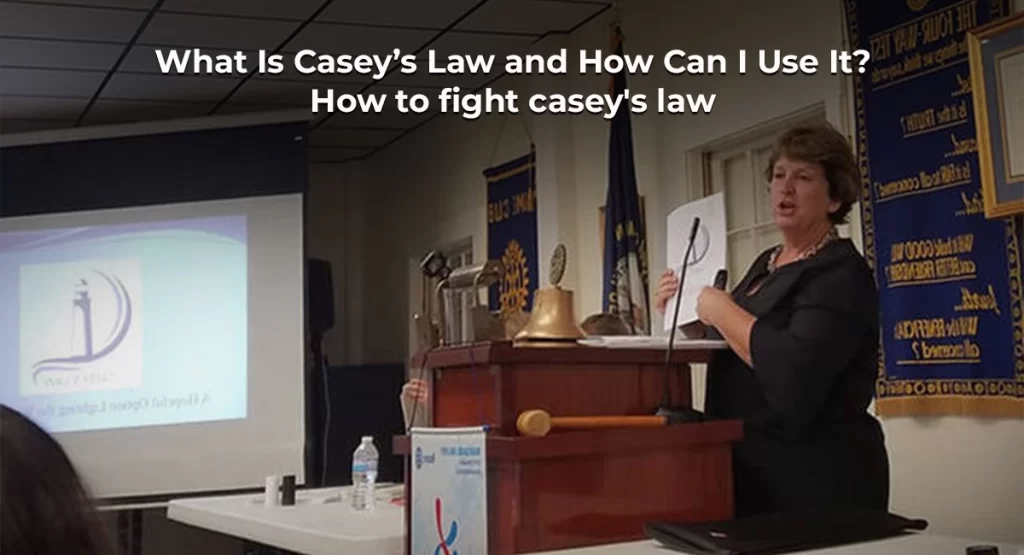Casey’s Law, known as the involuntary treatment law for alcohol and drug abuse in Kentucky, offers a way to help individuals who can’t see they need help due to addiction. It lets parents, relatives, or friends (called the “petitioner”) ask the court for treatment for someone struggling with alcohol and/or drug abuse (called the “respondent”).
Treatment options can differ based on each case. The petitioner must agree to pay all costs, including treatment expenses, so they should understand the potential financial burden before signing.
Under Casey’s Law, individuals struggling with drug or alcohol abuse, called the respondent, may seek help through the court if:
1. They are dealing with alcohol or drug abuse.
2. They pose a risk of harm to themselves, their family, or others due to their substance abuse, or if such a risk is likely in the near future.
3. They are likely to benefit from treatment.
Casey’s Law proceedings are aimed at providing support to the respondent. It’s crucial to understand that it might take around two weeks to arrange treatment for the respondent.
What Does Casey’s Law Do?
This law offers hope to families and friends of those struggling with addiction.
Steps to Follow
1. Someone close to the person with addiction files a petition with the district court clerk.
2. The court examines the petition and questions the person who filed it.
3. The court decides if there’s enough reason to order treatment for the person with addiction.
4. If there’s enough reason, the court schedules a hearing within two weeks.
5. The person with addiction is informed about the hearing.
6. The person is evaluated by two qualified health professionals, including one physician.
7. If the court decides treatment is necessary, it can order treatment for 60 to 360 days, based on the petition and hearing outcome.
What’s the Casey’s Law process timeline?
Once you file the paperwork, a hearing is set within 14 days. At this hearing, the court decides whether to mandate treatment. Be prepared to take the person to the facility right after.
The duration of mandated treatment varies case by case. Opting for 360 days could be beneficial because if the person leaves or relapses during this time, the mandate still applies.
Treatment can involve detox, inpatient rehab, and outpatient therapy. It doesn’t necessarily mean spending a year in a hospital; places like JourneyPure offer a more relaxed environment, similar to a campus retreat.
What’s the story behind Casey’s Law? How to fight casey’s law

Matthew “Casey” Wethington went from being a lively kid to someone his family hardly recognized after becoming addicted to heroin in his early twenties.
Casey grew up in a caring, middle-class family and enjoyed typical hobbies like video games, baseball cards, and skateboarding. However, his life took a drastic turn when he was introduced to drugs at just 14 years old. Like many who fall into addiction, Casey never intended to become hooked, but unfortunately, that’s exactly what happened.
As his addiction took hold, Casey’s mental development suffered, and drugs consumed his thoughts. Coping with addiction is tough for anyone, let alone a teenager, and despite his family’s efforts, Casey refused to seek help.
Key Points from Casey’s Law Journey
- Casey’s experience is not unique, prompting his parents to advocate for Casey’s Law.
- Since its passage in 2004, Casey’s mother, Charlotte, founded PEACE, a support group for those affected by addiction.
- Charlotte educates the public about addiction through a monthly TV show.
- To combat opioid overdoses, Charlotte and her husband distribute Narcan using Casey’s former vehicle in Northern Kentucky.
Casey’s Law Petition Checklist
1. Schedule appointments with one doctor and one qualified health professional approximately two weeks in advance for the respondent’s evaluation.
2. Complete the AOC 700A form and submit it to the County Attorneys’ Office. Ensure your contact information is accurate.
3. The Warren Circuit Clerk’s Office will notify you of the first hearing date once the petition is filed. This hearing is typically scheduled within two days, but weekends may affect timing. Attendance is mandatory to avoid case dismissal or contempt charges.
4. Following the initial hearing, the respondent must adhere to the evaluation requirements.
5. Inform the medical professionals to promptly return evaluation forms to either the Warren Circuit Court Clerk’s Office or the Warren County Attorney’s Office.
Casey’s Law FAQs (Kentucky)
1. What is Casey’s Law?
It allows courts to order involuntary drug/alcohol treatment for those meeting specific criteria.
2. Who qualifies for involuntary treatment?
Someone who abuses substances, poses a danger to themselves or others, and can benefit from treatment.
3. How does the process work?
A loved one files a petition, the court holds hearings, and evaluations are done before treatment is ordered.
4. What if the person refuses evaluation?
The court can order them brought in by law enforcement.
5. How long does it take?
The process typically takes about two weeks.
6. Who pays for treatment?
The person who filed the petition is financially responsible.

